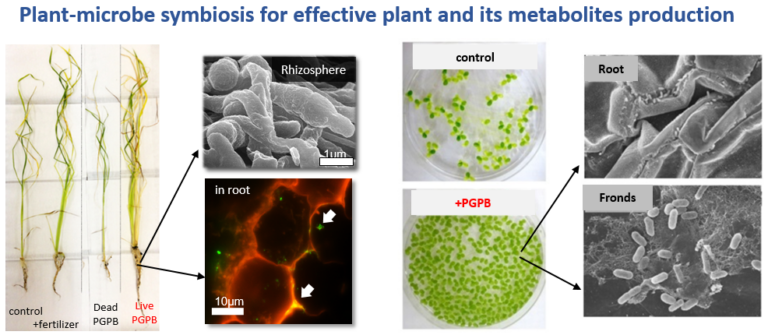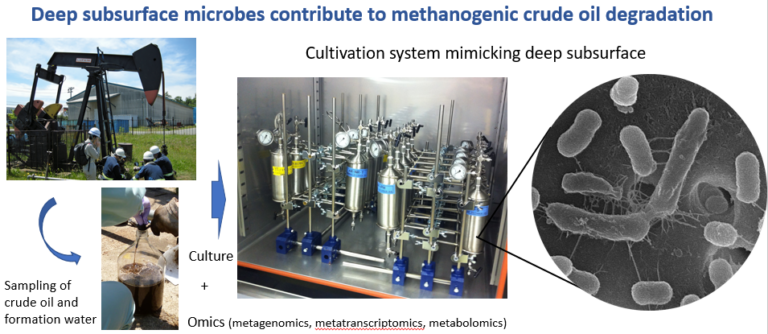By the combined use of the cultivation techniques and the advanced molecular ecological methods via next generation sequencing technology, we aim to elucidate ecophysiological functions of environmental microorganisms associated with energy production and environmental purification. In particular, we have focused on symbiotic interactions between aquatic plants and their root microbes since the plant-microbe interactions may contribute to development of novel bioprocess for effective environmental control and bio-product innovation (supported by JST-ALCA: Advanced Low Carbon Technology R&D). So far, we have found novel microorganisms that can vigorously promote growth of the aquatic plants (PGPR: plant growth promoting rhizobacteria) and attempted to elucidate the underlying mechanisms of the novel biological interactions. We also focus on novel microbiological processes behind the biological sink of atmospheric trace gases. In particular, plant-associated bacteria demonstrating the ability to consume atmospheric H2, the tropospheric burden of this indirect greenhouse gas is considered to increase under a future H2-based economy, is investigated to determine their phylogenetic identity and eco-physiological properties. We aim to provide useful findings for technology development of environmental engineering consulting atmospheric composition change.

Furthermore, we have investigated anaerobic microbial communities and functions in terrestrial subsurface environments because of their great impact on global carbon cycling and energy production such as methane production. In particular, we have conducted the collaboration research with Geomicrobiology Research Group (http://unit.aist.go.jp/georesenv/geomicrob/member_en.html) in Institute for Geo-Resources and Environment (GREEN) and several private companies to better understand microbial communities and their ecophysiology associated with methanogenic crude oil degradation in the depleted oil reservoirs. Through the research, we aim to provide new insights into geomicrobiology in the oil fields and contribute to development of novel enhanced oil recovery (EOR) technologies.


